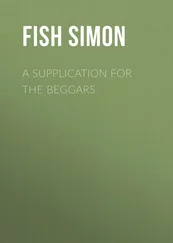Dadamoshai believed that women were not given a fair chance in our society, largely due to their lack of education. Why were Indian boys sent to study at the finest universities abroad, he argued, while girls were treated like some flotsam washing in with the river tide?
Traditionalists accused Dadamoshai of rocking the social order and luring women away from their jobs as homemakers. What good would it do for women to bury their heads in math and science? Or, for that matter, to go around spouting Shakespeare? Pots and pans would grow cold in the kitchen and neglected children would run around the streets like pariah dogs.
In many ways, Dadamoshai saw me as the poster child for the modern Indian woman. He gave me the finest education and taught me to speak my mind. I was free to forge my own destiny. Sometimes I struggled to stay grounded like a lone river rock in a swirl of social pressures. But in truth, this was the only option I had.
* * *
Miss Thompson, my private English tutor, lived in a small primrose cottage behind the Sacred Heart Convent. A spry woman with animated eyes, she had about her a brisk energy that made you sit up and pull in your stomach. Her father, Reginald Thompson, the former District Magistrate of Assam, was Dadamoshai’s predecessor and mentor. Dadamoshai had seen Miss Thompson grow up as a young girl.
I was Miss Thompson’s first Indian student. Ever since I was seven, I took a rickshaw to her house three days a week. After my lessons, I would walk over to Dadamoshai’s office in the old courthouse where I’d sit and do my homework, surrounded by the clatter of typewriters and the smell of carbon paper until it was time for us both to come home.
Miss Thompson was a stickler for pronunciation. She made sure I enunciated each word with bell-like clarity with the stress on the right syllable. I learned to say what, where and why accompanied by a small whoosh of breath I could feel on the palm of my hand held six inches from my face. It was Miss Thompson who instilled in me my love for literature. She encouraged me to plumb the depths of Greek tragedy, savor the fullness of Shakespeare, the lyrical beauty of Shelley. As I grew older, I saw less and less of her, until our meetings became just the occasional social visit. She had more Indian students now, she said, thanks to Dadamoshai’s flourishing girls’ school.
I decided to drop by and see her. She was usually home on Tuesday mornings, I knew. I arrived to find a rickshaw parked outside her gate and an elderly servant woman sitting on the porch. Miss Thompson must be with a student, I imagined. Young girls were never sent out unchaperoned in our society. Dadamoshai, on the other hand, always insisted I go everywhere alone. This raised a few eyebrows in our town. I was about to turn around and walk away when Martha, Miss Thompson’s Anglo-Indian housekeeper of sixty years, called out to me from the kitchen window. She said Miss Thompson was indeed with a new student, but asked me to wait as the lesson was almost over.
I sat on the sofa in the drawing room. Through the slatted green shutters a guava tree waved its branch and somewhere a crow cawed mournfully. Nothing changed in Miss Thompson’s house. Everything was exactly where it was the very first day I walked in ten years ago. The small upright piano with a tapestry-cushioned pivot stool, the glass-door walnut curio cabinet with its fine collection of Dresden figurines I knew so well, the scattering of peg tables topped with doilies of tatting lace. On the wall were faded sepia photographs of Reginald Thompson in his dark court robes, his pretty, fragile wife who’d died young and Miss Thompson and her sister as young girls riding ponies.
Voices trickled in through the closed door of the study. I heard a timid, female voice say something inaudible, followed by Miss Thompson.
“Breeze. Lengthen the e please and note the ‘zee’ sound. It is not j. It’s z. Zzzz. Make a buzzing sound with your lips. Like a bee. Breezzzze. Breezzzze.”
“Bre-eej,” the girl repeated hesitantly.
I could just see Miss Thompson tapping the wooden ruler softly against her palm, a gesture she made to encourage her students, but it only intimidated her Indian girls, who saw the ruler as a symbol of corporal punishment.
“Breeze,” Miss Thompson said patiently. “Try it one more time.”
“Brij,” said the girl.
“That, dear child, is j like in bridge. You know a bridge, don’t you? The letter d coupled with a g has a j sound. Bridge. Badge. Badger.”
Badger! My heart went out to the poor girl. How many Indian children were familiar with a badger? A mongoose, yes, but a badger? I only happened to know what a badger was because, thanks to Miss Thompson, I had read The Wind in the Willows as a child. British pronunciation was completely illogical, I had concluded a long time ago. I remember arguing with Dadamoshai why were schedule and school pronounced differently. If schedule was pronounced shedule should not school be pronounced shoole? Dadamoshai said I had an intelligent argument there, but there was really no logic—besides, the British were not the most practical-minded people in the world. Americans were much more sensible that way: they said skedule.
There was silence in the next room, then a rustle of papers. I heard Miss Thompson say, “Never mind, dear. I think we’ve practiced enough for today. Now, no need to fret about this. It will come. Pronunciation is just practice. After all, your mother tongue is very different, isn’t it? I understand the letter z doesn’t even exist in your language, so how are you expected to say it?”
A chair scraped back. “Thank you, Miss Toomson,” a high girlish voice replied.
There were footsteps, and Miss Thompson held the door open. “You are most welcome, Konica,” she said. “I’ll see you next Tuesday.”
I had expected a small child to walk out of the study; instead it was a grown woman dressed in an expensive pink sari with gold bangles on her wrists, her hair oiled and fashioned into a formal bun. She looked strangely out of place in Miss Thompson’s modest English home.
“Oh, Layla! What a lovely surprise,” cried Miss Thompson, seeing me. The girl looked up and our eyes met. “I will be with you in just a minute, dear. Let me just see Konica to the door.”
Konica? Kona Sen!
Kona’s bangles chinked softly as she walked by with mincing steps. Her eyes stayed on the floor the entire time; she did not glance up even once as she passed by me sitting on the sofa.
I must have looked pale and in need of fortification, because Miss Thompson said, “You look exhausted, dear. Let’s have a cup of tea, shall we? Martha, some tea, please!” she called toward the kitchen then turned to me. “That was Konica Sen. She lives on Rai Bahadur Road, same as you. You must know each other?”
“I don’t think we’ve actually been introduced,” I said vaguely. “I’ve seen her around of course.”
“Her father came to see me. Mr. Sen is anxious Konica improves her spoken English. She is getting married soon, you know. The boy is Indian but has lived in England all his life. He walks and talks just like an Englishman, Mr. Sen said. The young man has joined the civil service in Calcutta. Konica will live there after they are married. Her father is worried she won’t be able to mix in her husband’s social circles if she cannot speak English.”
My brain was still unscrambling from the shock of seeing Kona. Did she recognize me? It was hard to tell because Kona’s face was expressionless, like a boiled egg. It did not give out much.
“To tell you the truth, I would have never taken on a new student her age,” Miss Thompson continued. “It’s an uphill task to teach spoken English to someone who comes from such a traditional Indian family. Learning to speak a language, as you know, calls for a lot of oral practice. Nobody in Konica’s family speaks English. Even her father can barely get by.”
Читать дальше












